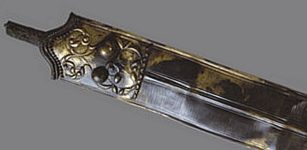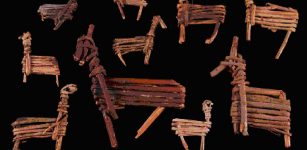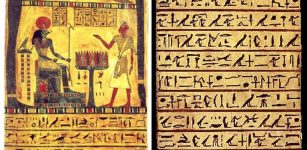Why Was Alexander A Great Military Genius?
AncientPages.com - Alexander the Great (Alexander III of Macedon), was a military genius who changed the nature of the ancient world and he did it in little more than a decade.
Alexander was born in Pella, the ancient capital of Macedonia in July 356 BC. His parents were Philip II of Macedon and his wife Olympias.
After his father's death Alexander inherited a powerful yet very unstable kingdom but he quickly harnessed the Macedonian forces that his father’s reforms had made into the premier military power in the region. In 334 B.C., he led a grand army across the Hellespont in Asia.
With some 43,000 infantry and 5,500 cavalry, it was the most formidable military expedition ever to leave Greece.
He then led his powerful army to victories across the Persian territories of Asia Minor, Syria and Egypt and during this time, he suffered not a single defeat.
In his book "History's Greatest Military Commanders", Barry Linton writes:
"Alexander of Macedon conquered and expanded an Empire extending from Greece to faraway Indian Asia in a life cut short at the age of only 32..."
"In the key battle of Chaeronea – a decisive encounter in Phillip's campaign to defeat the Greeks and add their lands to the Macedonian Empire – the 18-year-old Alexander was given the responsibility of commanding the left wing in the line of battle. Even at this age, his military genius shone through and he was the first to break through the enemy's lines. He fought bravely and was seen as a great credit to his father.."
Alexander the Great was a leader with inspirations for his people.
"Roman historian Plutarch describes an event during the forced desert march where some of his soldiers brought Alexander their meager water supply in an upturned helmet. Alexander without hesitation refused to drink, boldly declaring that he would suffer thirst alongside his men. The surrounding soldiers were moved and responded that they would “follow such a King anywhere...”
See also:
How Did Alexander The Great Die?
Gordian Knot And How Alexander The Great Managed To Outmaneuver The Problem
His greatest victory was at the Battle of Gaugamela, in what is now northern Iraq, in 331 BC. The young king of Macedonia, leader of the Greeks, overlord of Asia Minor and pharaoh of Egypt became 'great king' of Persia at the age of 25.
Over the next eight years, in his capacity as king, commander, politician, scholar and explorer, Alexander led his army a further 11,000 miles, founding over 70 cities and creating an empire that stretched across three continents and covered around two million square miles.
The entire area from Greece in the west, north to the Danube, south into Egypt and as far to the east as the Indian Punjab, was linked together in a vast international network of trade and commerce.
This was united by a common Greek language and culture.
The fact that his army only refused to follow him once in 13 years of a reign during which there was constant fighting, indicates the loyalty he inspired.
Copyright © AncientPages.com All rights reserved. This material may not be published, broadcast, rewritten or redistributed in whole or part without the express written permission of AncientPages.com
Expand for referencesReferences:
Freeman Ph. Alexander the Great
Thomas R. Martin, Christopher W. Blackwell, Alexander the Great: The Story of an Ancient Life
More From Ancient Pages
-
 Unique Medieval Perfectly Preserved Sword Found In The Odra River, Poland
Archaeology | Aug 12, 2020
Unique Medieval Perfectly Preserved Sword Found In The Odra River, Poland
Archaeology | Aug 12, 2020 -
 Evidence Of An Ancient Roman Oracle Cult Found In Ostia, Italy
Archaeology | Jun 18, 2024
Evidence Of An Ancient Roman Oracle Cult Found In Ostia, Italy
Archaeology | Jun 18, 2024 -
 Study: Paleo-Americans Hunted Mastodons, Mammoths And Other Megafauna In Eastern North America 13,000 Years Ago
Archaeology | Jun 15, 2023
Study: Paleo-Americans Hunted Mastodons, Mammoths And Other Megafauna In Eastern North America 13,000 Years Ago
Archaeology | Jun 15, 2023 -
 Unexpected Discovery Of Roman Baths Under Split City Museum In Croatia
Archaeology | Dec 7, 2023
Unexpected Discovery Of Roman Baths Under Split City Museum In Croatia
Archaeology | Dec 7, 2023 -
 The Enigma Of The ‘Ancient Ones’, The Anasazi Cliff-Dwellers Of The Southwestern United States
Ancient Mysteries | Apr 9, 2017
The Enigma Of The ‘Ancient Ones’, The Anasazi Cliff-Dwellers Of The Southwestern United States
Ancient Mysteries | Apr 9, 2017 -
 DNA Study Shows Pre-Historic Wallacea Was A Melting Pot Of Human Genetic Ancestries
Archaeology | Jun 9, 2022
DNA Study Shows Pre-Historic Wallacea Was A Melting Pot Of Human Genetic Ancestries
Archaeology | Jun 9, 2022 -
 Biblical Mystery Of The Forbidden Fruit And The ‘Deep Sleep’
Ancient Mysteries | Feb 13, 2022
Biblical Mystery Of The Forbidden Fruit And The ‘Deep Sleep’
Ancient Mysteries | Feb 13, 2022 -
 Does Celtic Art Have Links With Iron Age Art Of The Eurasian Steppes?
Archaeology | Oct 15, 2015
Does Celtic Art Have Links With Iron Age Art Of The Eurasian Steppes?
Archaeology | Oct 15, 2015 -
 Drought Reveals 2,000-Year-Old Rock Carvings In Brazil’s Amazon
Archaeology | Oct 23, 2023
Drought Reveals 2,000-Year-Old Rock Carvings In Brazil’s Amazon
Archaeology | Oct 23, 2023 -
 Golden Secrets Of Lake Guatavita And The Muisca People Gave Rise To The El Dorado Myth
Featured Stories | Nov 12, 2019
Golden Secrets Of Lake Guatavita And The Muisca People Gave Rise To The El Dorado Myth
Featured Stories | Nov 12, 2019 -
 Evidence Humans Have Been Using Bear Skins For At Least 300,000 Years Discovered
Archaeology | Dec 27, 2022
Evidence Humans Have Been Using Bear Skins For At Least 300,000 Years Discovered
Archaeology | Dec 27, 2022 -
 Tusayan Pueblo Ruins And Split Twig Figurines Tell Story Of People Who Once Inhabited The Grand Canyon
Civilizations | Nov 13, 2018
Tusayan Pueblo Ruins And Split Twig Figurines Tell Story Of People Who Once Inhabited The Grand Canyon
Civilizations | Nov 13, 2018 -
 Why Did Ancient Egyptians Use Pillows Made Of Stone?
Ancient History Facts | Jun 18, 2018
Why Did Ancient Egyptians Use Pillows Made Of Stone?
Ancient History Facts | Jun 18, 2018 -
 Mystery Of The Coso Artifact: A Spark Plug Or A Genuine Example Of Advanced Antediluvian Technology?
Ancient Technology | Sep 9, 2014
Mystery Of The Coso Artifact: A Spark Plug Or A Genuine Example Of Advanced Antediluvian Technology?
Ancient Technology | Sep 9, 2014 -
 Human Activities In The Year 1300 Impacted Earth’s Atmosphere More Than Previously Known
Archaeology | Oct 9, 2021
Human Activities In The Year 1300 Impacted Earth’s Atmosphere More Than Previously Known
Archaeology | Oct 9, 2021 -
 Mysterious Sumerian Queen Puabi And Her Magnificent Underground Burial Complex – Many Followed Her To Afterlife
Featured Stories | Oct 20, 2016
Mysterious Sumerian Queen Puabi And Her Magnificent Underground Burial Complex – Many Followed Her To Afterlife
Featured Stories | Oct 20, 2016 -
 Location Of Burial Place Belonging To Alexander Nevsky’s Son And Grandson – Found
Archaeology | May 3, 2021
Location Of Burial Place Belonging To Alexander Nevsky’s Son And Grandson – Found
Archaeology | May 3, 2021 -
 Graffiti Reveals Crusaders’ Beautiful Altar In The Church Of The Holy Sepulchre
Archaeology | Jul 24, 2024
Graffiti Reveals Crusaders’ Beautiful Altar In The Church Of The Holy Sepulchre
Archaeology | Jul 24, 2024 -
 Strange History Of Stele Of Ankh-ef-en-Khonsu – ‘Stele Of Revealing’ Gave Birth To Thelema, A New Religion
Artifacts | Apr 3, 2018
Strange History Of Stele Of Ankh-ef-en-Khonsu – ‘Stele Of Revealing’ Gave Birth To Thelema, A New Religion
Artifacts | Apr 3, 2018 -
 Huge Folklore Map With Supernatural Beings And Mythical Monsters Created – Available For Free Online
Folklore | Jan 7, 2025
Huge Folklore Map With Supernatural Beings And Mythical Monsters Created – Available For Free Online
Folklore | Jan 7, 2025


